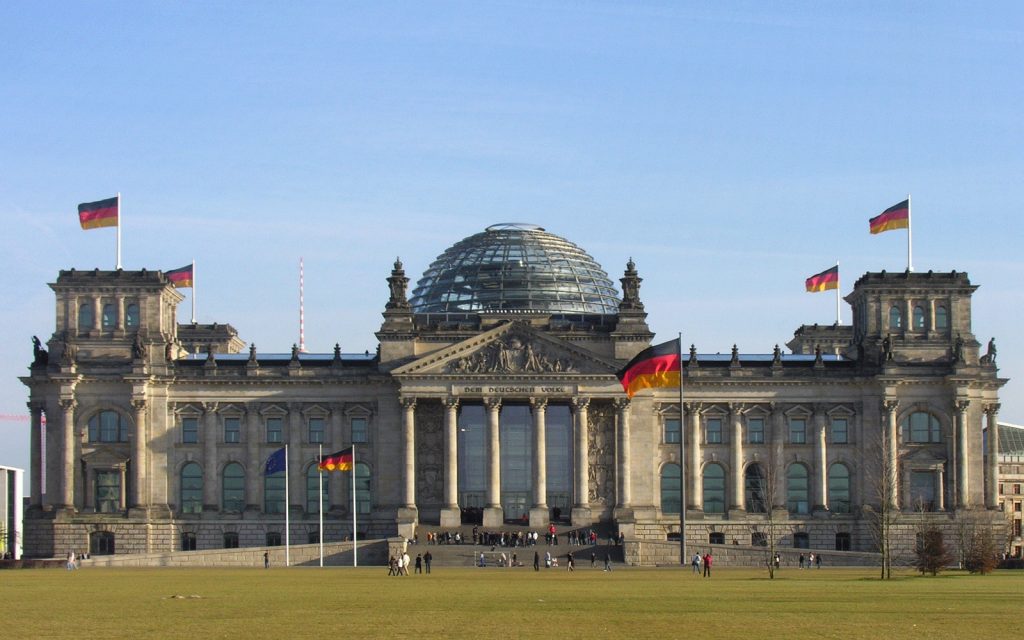RIO DE JANEIRO, BRAZIL – A poster on the Berlin tram #12 on Sunday encouraged passengers to work as drivers. This is the picture of the new normalcy in Germany, a country that is looking for skilled labor inside and outside its borders.

The topic was the subject of a high-ranking meeting in Berlin on Monday, with the participation of government, trade unions, employers and federal states interested in preventing the German locomotive from braking for lack of workers (there are almost 1.4 million vacancies). The goal is to prepare the ground for a law that will make it easier for employees from outside the EU to enter in March.
Chancellor Angela Merkel made a speech after the meeting, along with ministers and representatives of business and trade unions, to send a message of unity and clarify the existence of a social consensus around the need to attract foreign workers. All present signed a document in which they commit to facilitating the incorporation of qualified foreign workers.
Merkel spoke of a paradigm shift and considered that “the important thing is that in other countries they see us as a country that is open and interested in the world, because we are not the only ones who are interested in skilled workers. There is a lot of competition”. Peter Altmaier, the Minister of Economy, said that the country could “grow faster” if it takes in “skilled workers”.
A survey by the German Chambers of Industry and Commerce (DIHK) published on the occasion of the mini-summit in Berlin shows that 56 percent of entrepreneurs consider the lack of workers as the main risk factor for their business. The Institute for Employment Research (IAB), linked to the Federal Employment Agency, accounts for 1,359,000 open jobs nationwide.
After almost a decade of uninterrupted economic growth, and despite the current slowdown, unemployment figures are the lowest since German reunification in the early 1990s. The computer, health care, construction and gastronomy sectors are the most affected.
A year ago, the German government passed a law to attract skilled workers from outside the EU. There are already 2.5 million Europeans working in Germany, but Berlin estimates that the flow of workers from the EU will decrease due to the aging of neighboring countries, which will need their own workers. The priority, as economic agents made clear on Monday, is to make the most of the domestic labor force, although aware that it is clearly insufficient.
“We know that many entrepreneurs are desperately looking for skilled workers,” Merkel said over the weekend, warning of a potential flight of companies should Germany fail to attract labor. “We must do our utmost to recruit a sufficient number of specialists. Otherwise, companies will have to emigrate, and that is obviously not what we want,” she said.
The law, which is due to come into force on March 1st, 2020, allows foreign workers with vocational training – not necessarily university graduates – to enter the German market without the need to prove that there are no Germans or citizens of other EU countries available to cover a particular vacancy. Nor will it be required to demonstrate a link with a particularly needy sector or professional activity.

Without prior contract
Employees will have to know the German language and will be able to move to Germany without a contract for six months, provided they meet the requirements set out in the law. The plan is that the new legislation will allow tens of thousands of new workers to land each year.
The political, social and economic agents meeting in Berlin agreed on the need to expedite the granting of visas by reaching agreements with the countries of origin. Speeding up the approval of all types of training by increasing the number of staff dedicated to these tasks is another of the goals set, together with simplifying the teaching of the German language.
On an official government website entitled ‘Make it in Germany’, interested foreign workers can find information on jobs in Germany and language courses. Another goal is to strengthen this website as a means of connecting employers and employees.
The Minister of Labor, Hubertus Heil, urged entrepreneurs to present a recruitment strategy. He said that it is the companies that need to detail in which states and economic sectors more workers are needed, to prioritize bureaucratic simplification. In an interview with ARD TV channel, Heil admitted that the shortage of workers is already “a brake on growth,” alluding to the recurring complaint of businessmen that they can not accept requests for lack of personnel. Heil anticipated that there will be pilot projects with Brazil, India, and Vietnam to organize simplified migration schemes for skilled workers.
The technology sector is one of the most affected. There are an estimated 124,000 vacancies. “This is a record figure for the past 20 years,” says Bastian Pauly, spokesman for Bitkom, an organization representing 2,600 German companies in the digital economy. Job openings are increasing, despite the economic downturn, due to the increasing digitalization of the economy.
With the new law, an experienced Indian programmer will be able to obtain a work permit even if he or she does not have the necessary degree. It is also a particularly propitious sector in which international culture prevails and in which it is more important to know the programming language than the German language.
Source: El País

